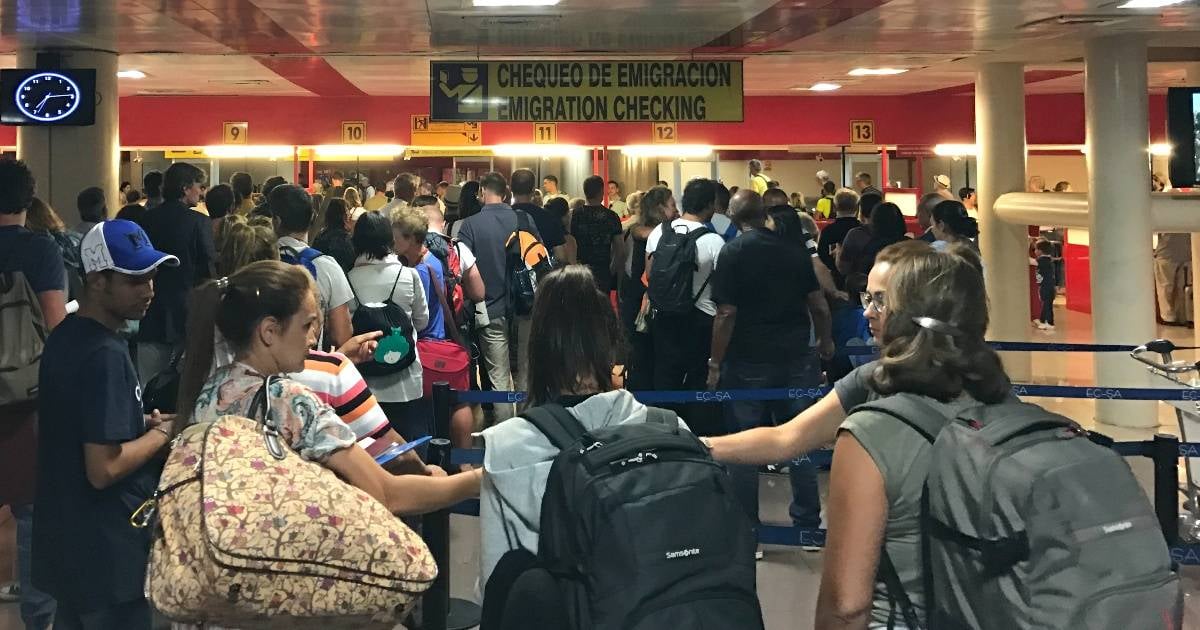The Cuban regime has pointed fingers at the United States government for the mass exodus from the island, claiming that it stems from what they describe as coercive measures imposed by the White House. An article from Cubadebate, published on Thursday, accuses Washington of encouraging migration since 1959, suggesting that the impact of this policy has intensified in recent years with Cuba's continued presence on the list of state sponsors of terrorism.
Johana Tablada, Deputy Director of the U.S. Division of the Ministry of Foreign Affairs (Minrex), stated that sanctions led by figures such as Donald Trump, Marco Rubio, and Mike Pompeo have worsened the island's economic crisis, resulting in an increased flow of migrants. Tablada pointed out that when Barack Obama removed Cuba from the list of state sponsors of terrorism and eased bilateral relations, migration significantly decreased. However, the tightening of policies under the Trump administration and the re-listing in 2021 led to a record surge in Cuban emigration.
The Real Causes Behind Cuban Migration
Despite these claims, it is not Washington's sanctions driving Cubans to leave, but rather the country's dire internal crisis. Cuba is grappling with rampant inflation, inadequate wages, a lack of supplies, frequent power outages, and a severe lack of freedoms. State repression, which intensified following the July 11, 2021 protests, has heightened fear and desperation among Cubans who see no resolution to the economic turmoil.
Since 2022, over 850,000 Cubans have left the island, amounting to roughly 18% of the population. This figure surpasses even the 1990s raft crisis, highlighting the severity of the internal collapse. Many Cubans have resorted to perilous routes through Nicaragua and Central America, paying between $8,000 and $10,000 for journeys that often end in tragedy or detention by foreign immigration authorities.
The Role of the U.S. and Deportations
The United States has attempted to curb irregular migration through various measures, including the resumption of deportations. Nevertheless, the Cuban government continues to accuse its northern neighbor, framing the embargo as the primary cause of the migration crisis. Last week, Díaz-Canel reacted angrily to remarks by Senator Marco Rubio, who labeled Cuba, Venezuela, and Nicaragua as "enemies of humanity" and blamed their regimes for the migratory crisis in the hemisphere.
On his X account, the Cuban leader accused Washington of sparking the exodus with a tightened embargo and called American politicians implementing sanctions against his government "neo-fascists."
An Uncertain Future for Cubans
The outlook in Cuba is bleak, with a stagnant economy, escalating repression, and little hope for structural change. As long as the Havana regime continues to deflect responsibility for the crisis and fails to implement genuine reforms, the migration situation is likely to deteriorate further. The United States may alter its policies, but unless Cuba provides opportunities and freedoms to its people, the exodus will persist unabated.
Understanding the Cuban Migration Crisis
Why is there a significant increase in Cuban migration?
The increase in Cuban migration is largely attributed to the country's severe internal crisis, including inflation, inadequate wages, supply shortages, power outages, and lack of freedoms, rather than solely U.S. sanctions.
What measures has the U.S. taken to address Cuban migration?
The U.S. has implemented various measures, including the reactivation of deportations, to curb irregular migration from Cuba.
How has the Cuban government responded to U.S. actions?
The Cuban government has accused the U.S. of causing the migration crisis through its embargo and intensified sanctions, while deflecting responsibility for the internal issues driving emigration.
